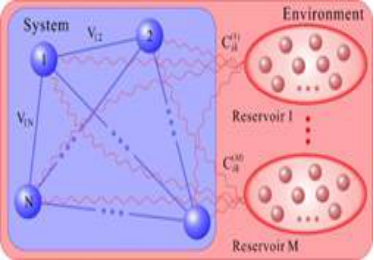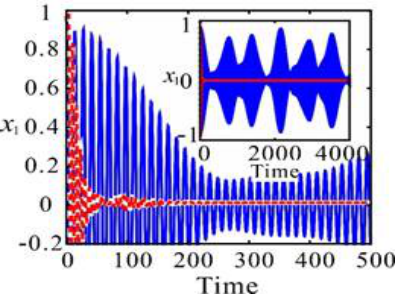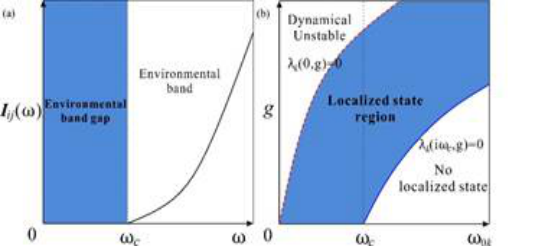Rapidly-developingcontinuous-variable quantum information hasattractedextensive attentionamong scientistsin recent years. In continuous-variable quantum information, information is represented by continuousvariables in the system, such as the momentum and coordinates of a quantum harmonic oscillator. Thischaracteristicsmakes it effective in quantum communication and quantum-related technologies such as preparation, manipulation, sensing,and detection. Inaddition, quantum calculations based on continuous variablesis possiblein atomic or solid state systems. Therefore, continuous-variable quantum information has a very good development prospect. Since continuous-variable systems can often be wellillustrated inGaussian processes, Gaussian continuous-variable quantum information plays a primary and critical role.
Due to the environmental influence, in general, dissipation and decoherence will occur in the quantum system. These processes can severely destroy quantum resources in the system, such as quantum entanglement and quantum correlation, which play an important role in quantum information technology. Therefore, how to overcome environmental noisesand protectthequantum resources in quantum systems is a key issue in quantum information.
Recently, a new research has been made by Prof. Zhang Guofeng with his Ph.D student Zhu Hanjie, in collaboration with Liu Wumin, a researcher from the Institute of Physics of Chinese Academy of Sciences and Prof. Zhuang Lin from theSchool of PhysicsofSun Yat-Sen University. By studying Gaussian continuous-variable systems in the presence of a band-gapped bosonic environment (Fig. 1), it is found that environmental band gaps can influence the dissipationless dynamics (Fig. 2). In addition, the system's dissipationless behavior is caused by localized modes induced by the band-gapped environment (Fig. 3), and this localized mode remains stable under ambient noises. By adjusting the environment to induce localized modes, the impact of environmental noises on the system can be well controlled. The above conclusions are applicable to the general Gaussian continuous-variable scheme, which not only provides a new idea for protecting quantum resources in continuous-variable systems, but also for the understanding of non-Markovability in multi-body open systems.
Prof. Zhang Guofeng and his Ph.D student Zhu Hanjie are joint first authors of this paper and Prof. Zhang is also thecorresponding author.
The work was supported bythe National Natural Science Foundation of Chinain general program, national science, key R&D projectsconductedby the Ministry of Science and Technology of the PRC and priority projectsconductedby Chinese Academy of Sciences.

Fig. 1 Illustration of the general Gaussian network of open oscillators

Fig. 2The system's dissipationless behavior (Time evolution of the expectation)

Fig. 3 (a)Band-gapped structure of the environment spectrum
(b) Localized mode status
The Research article is available at:
https://journals.aps.org/prl/abstract/10.1103/PhysRevLett.121.220403